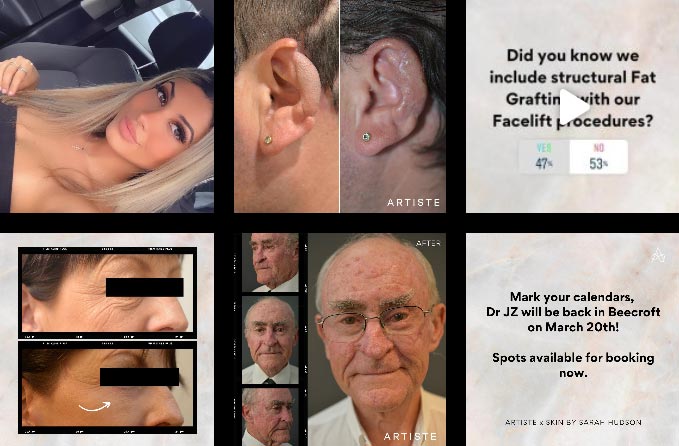Is a Nose Job a Painful Procedure?
Model featured in photography
Rhinoplasty can involve considerations related to both nasal appearance and function. Individuals who are exploring this procedure often have questions about the recovery process and what to expect. This article provides general information on common recovery experiences and approaches that may aid in comfort following surgery.
Does Rhinoplasty Hurt?
Patients often wonder about the pain associated with rhinoplasty. Generally, nose surgery is performed under anaesthesia, so discomfort isn’t felt during the procedure itself. However, once the anaesthetic wears off, patients may notice varying levels of discomfort, depending on individual factors and the surgical approach used.
The experience may be likened to a “stuffy nose” due to swelling that makes breathing through the nose challenging the first few days or weeks. It’s typical for patients to rely on mouth breathing while any internal nasal packing is in place. This sensation can feel more bothersome than painful, with most discomfort improving as swelling gradually subsides.
Experiences vary in terms of pain. It may be comparable to milder procedures like wisdom tooth surgery, and may be less intense than expected. It ultimately depends on the person’s level of pain tolerance.
It’s important to follow your surgeon’s post-operative instructions and discuss the dos and donts after the surgery to minimise discomfort.
Pain and Discomfort After Rhinoplasty Surgery
Patients may experience pain, swelling, bruising, and nasal congestion for several days after the procedure. The severity of these symptoms varies depending on the individual and the extent of the surgery. Symptoms improve after 5 days, and most of our patients do not take any pain medication after 7 days.
How To Manage Pain And Swelling After A Nose Job?
There are several ways to manage pain and discomfort after surgery. Patients can take pain medication as prescribed by their surgeon and use cold compresses to help reduce swelling. It’s also important to keep the head elevated, avoid bending over, and avoid strenuous activities that could increase blood pressure and cause further swelling.
Additionally, patients should avoid blowing their nose for the first week after surgery and use a saline nasal spray to help keep the nasal passages moist. Following your surgeon’s post-operative instructions and attending follow-up appointments can help ensure a smooth recovery.
Please treat this information as a general guide. Individual aftercare may vary, so it’s essential to follow your surgeon’s post-operative instructions.
If you’re interested in learning more about rhinoplasty options in Sydney, you may wish to reach out to Artiste Plastic Surgery. Dr. Jack Zoumaras is a qualified Specialist Plastic Surgeon who can discuss your individual needs and help you understand the rhinoplasty process, from initial consultation to post-surgery expectations. During the consultation, you will receive detailed information about the procedure, potential risks, and the typical recovery experience.
Considering cosmetic surgery is a personal decision and can feel overwhelming. It’s important to feel informed and comfortable throughout the entire process—from consultation through to surgery (should you decide to proceed). If you ever feel uncertain or anxious, remember that voicing any concerns to your surgeon is an essential part of achieving a well-informed and thoughtful decision.
Disclaimer: At Artiste Plastic Surgery, our Plastic Surgeons led by Dr Jack Zoumaras have been trained to the highest possible degree. All surgery has risks and it is always advised to get a second opinion. Risks are very real and we cannot guarantee any result. Results are illustrated as a guide only. All risks are managed and any need for revision surgery or complications (1-5%) can be managed by our specialist plastic surgeons.
Any statements on how you will feel is based on Level V Evidence:
Level V: How you will feel after plastic surgery varies between individuals, depending on psychological and physical factors. Our internal research is based on how patients in our practice feel after surgery.
The blogs are not a substitute for a medical consultation and do not form as part of the doctor to patient relationship.
SHARE THIS ARTICLE
Oct08
Upper vs Lower Eyelid Surgery: What’s the Difference
Disclaimer: At Artiste Plastic Surgery, our Plastic Surgeons led by Dr Jack Zoumaras have been trained to the highest possible degree. All surgery has risks and it is always advised ...
Oct08
Blepharoplasty for Hooded Eyes: Before & After Guide
Disclaimer: At Artiste Plastic Surgery, our Plastic Surgeons led by Dr Jack Zoumaras have been trained to the highest possible degree. All surgery has risks and it is always advised ...
ABOUT ARTISTE
Artiste Plastic Surgery is an Award Winning Specialist Plastic Surgery practice led by internationally trained Dr. Jack Zoumaras, Plastic Surgeon and Peer Reviewed Face Surgeon
Artiste offers the latest Cosmetic Surgical Procedures of the Face, Breast and Body, inspired from leading centres around the world.
STAY IN THE LOOP
Enter your email address below to receive updates on new articles and VIP access to promotions and special offers.
FOLLOW US ON INSTAGRAM
